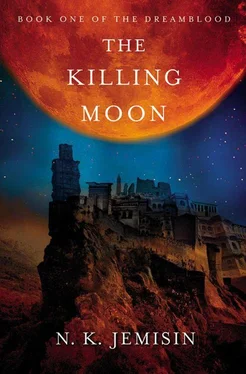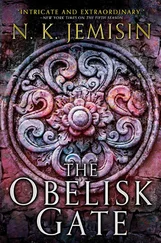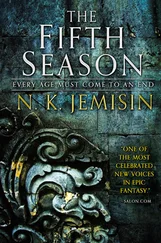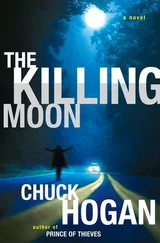“The Protectorate considers conscripts more trouble than they’re worth,” she said carefully.
Niyes shook his head. “In Gujaareh, criminals may earn their freedom by proving themselves free of corruption. They may be tried by a Gatherer or in battle; most choose the latter, though it may take years. So we train them.” He sobered. “A few fourdays ago, however, prisoners began dying.”
The smell had intensified, thickening the air, and now Sunandi recognized it: the early stages of decay, mingled with the spices and incense used in Kisuati embalmings. A tomb lay ahead, and it held a recent occupant.
Had some family member of Niyes’s been in prison? No, any shunha foolish enough to land in prison would have been disowned, his corpse tossed into a dung ditch.
The stair led to a short tunnel, which ended at a heavy stone door whose thickness did little to diminish the reek. Sunandi put a hand over her nose and mouth, trying to breathe the faint scent of the lemon-water she’d used to wash her fingers after dinner.
Niyes glanced at her, concerned. “A woman of your station would not have seen death often.”
“It is not unknown to me,” she said curtly. An orphan girl-child on Kisua’s streets witnessed all manner of ugliness and learned simply to thank the gods that it was no one she knew.
Niyes made no comment and pulled the thick rope that hung nearby. She heard the gritty roll of unseen pulleys and wheels, and the door slowly rose until the opening was of man-height. Foulness flooded out of the chamber to greet them; she gagged once but managed to keep her dinner down.
Setting the lever, Niyes released the rope and took up the lantern again. “I’m sorry to put you through this, Speaker, but you will understand once you have seen.”
She nodded, not trusting herself to speak, and followed him within.
The chamber was beautiful, despite the smell. Niyes’s line had clearly been wealthy enough to maintain it, despite the flooding, for many years. Elegant pillars, decorated austerely, circled the chamber’s center; shelves along the walls held rows of gold-and lacquer-inlaid urns. At the center stood a massive stone sarcophagus, its sides lined with Sua prayer-glyphs. By tradition the next to last of the dead would be within it. But the newest of the family’s ancestors held the honor of lying on the stone slab atop the sarcophagus, there to remain until someone else in the family died. Bodies were kept for as long as possible before cremation in case the soul had trouble finding its way to Ina-Karekh. Unless, here in Gujaareh, the corpse bore a Gatherer’s mark.
Niyes stepped close to the sarcophagus, lifting the lantern high for Sunandi. Steeling herself, Sunandi stepped forward to examine the corpse.
It was not one of Niyes’s relatives. Though the skin had darkened in death, Sunandi could still tell that the man, in life, had been much lighter-complected than any shunha of a respectable lineage. Perhaps even a northerner—although the hair was tight-curled and black, and the distorted features showed clear southern roots. A common Gujaareen, then.
But what truly shocked Sunandi was the expression on the corpse’s face. The eyes had sunken, but lines of striation still showed around the lids and across the brow. He’d died with his eyes shut tight. The mouth was open, lips drawn back in a way that could have been caused by drying and shrinkage of the skin—but she doubted it. It took no embalmers’ skill to recognize a mortal, agonized scream when she saw one.
“Twelve men have been found like this,” Niyes said, his voice soft in the silence. “All were young men, healthy. All died in the night without warning, mark, or wound. This one had a cellmate, who said he was like this before he died—thrashing, trying to cry out but making no sound. Asleep.”
“Asleep?”
Niyes nodded. “Asleep, and dreaming something so horrible that it killed him.” He looked up at her, his face haggard in the lamplight. “I brought this one here to keep as proof. The others were burned. Do you understand what it means?”
She swallowed, her gorge rising anew. “The abomination. But if your Hetawa has failed in its vigilance, then you should be showing this corpse to the Prince of Gujaareh, not me. I am Kisuati; I can only say, ‘We told you so.’ ”
“There’s more to it, Speaker. Strange events have occurred lately, especially in the past few years. The Prince—” He grimaced. “The Prince has quietly poured money into the shipdocks along the Sea of Glory. They’ve slowed now, but until two years ago they were working night and day producing ships. Merchant-vessels, the orders say, but of a strange design, made with heavier wood than normal.”
“The Sea of Glory has no connection to the Eastern Ocean,” Sunandi said, confused. “Ships built there are no threat to Kisua.”
“Those ships sailed away months ago and have never been seen or heard from again,” Niyes said. “Where do you think they’ve gone, Speaker?”
“North? South? They’re still no threat unless they sail west across the Endless and ’round the world to Kisua’s front gate—a feat no vessel has ever managed, except in tales.” Sunandi shook her head. “Leaving aside the fact that they might actually be merchant-vessels.”
Niyes sighed and ran a hand over his balding pate. “The Prince has also recently sought alliance with several northern tribes. Not just our regular trading partners, either—ax-mad barbarians from the icelands, who make our Bromarte seem well-mannered and gentle-hearted.”
“Perhaps he’s found new trading partners. Which of course would require new merchant ships.”
“But along with all the rest—including Kinja’s death—you must admit it paints a disturbing picture.”
It did indeed, but a picture that was far too indistinct to be of any use. Sunandi sighed. “I cannot bring this to the Protectors, General. Even if they believed me—which is no guarantee by far—they would ask the same questions I have, and you have no answers. I suspect you understand that. So I must ask: what did you really hope to gain from this meeting?”
“Your belief, if not the Protectors’. Kinja’s message—have you deciphered it yet?”
Sunandi grew very still. “I don’t know what you’re talking about.”
He grimaced. “There’s no time for games, Speaker. We cannot stay here much longer or the servants—some of whom are surely spies—might miss us. Suffice it that Kinja gave me the message just before he died, though he told me nothing of its content. Said I knew too much already. He asked me to make sure his successor received it if anything should happen to him. Your girl’s skills made that easy for me, thank the gods.” He reached over and took her hand, gripping it firmly. “Believe the message, Speaker. Make the Protectors understand. The Reaper is only the beginning.”
“I can’t make the Protectors understand anything, General—”
“You can. You must . Go there to convince them—you’ll have to leave anyway if you want to live; you know that, don’t you? Do it soon. The Prince knew Kinja had discovered something, and Kinja died. He already suspects you. You’re too obviously Kinja’s heir.”
“And you?”
Niyes smiled, bleakly and without a trace of humor. “I will doubtless take that place soon.” He nodded toward the stone slab. “But before I do, I want to try and prevent a great evil. My men are loyal and more than willing to die for Gujaareh—but I won’t let them die for this .”
His face was grim, his eyes hard and resigned. He was either the greatest liar she’d ever seen, or he meant every word.
After a long and careful scrutiny, Sunandi finally sighed. “Then take me out of here, General, before I lose my dinner. I’ll need all my strength intact if I’m to stop a war.”
Читать дальше












